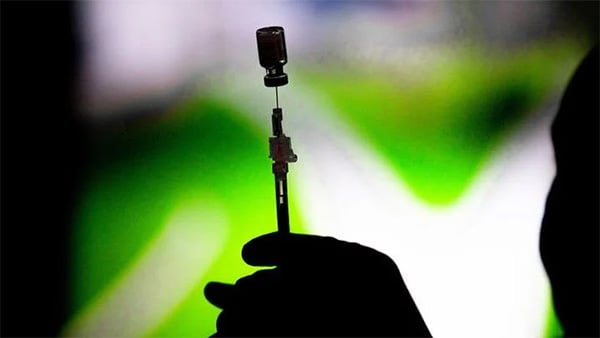Kentucky colleges and universities continued to make substantial progress toward the state’s educational attainment goals in 2019-20, exceeding targets for both STEM+H degrees and degrees among underrepresented minority students.
According to the latest figures from the Kentucky Council on Postsecondary Education, production of undergraduate credentials rose 3.3 percent compared to the prior year. That’s nearly twice the rate needed to meet CPE’s 60×30 goal, an ambitious effort to raise the percentage of working-age Kentuckians with a high-quality postsecondary degree or certificate to 60 percent by the year 2030.
More than 49 percent of Kentucky adults now have a postsecondary credential, up from 42.5 percent in 2014.

“Even with the challenges of 2020, campuses have moved the agenda forward,” said CPE President Aaron Thompson. “We’ve doubled down on strategies to identify and address Kentucky’s workforce needs, and most importantly, we’ve undertaken tremendous efforts to avoid leaving anyone behind.”
Statewide, Kentucky campuses awarded 23,865 bachelor’s degrees, 10,005 associate degrees and 14,217 certificates or diplomas during the year. Much of the progress toward attainment goals was due to a sharp rise in certificates and diplomas, which rose 10 percent over the previous year and have soared by nearly 53 percent since 2014-15.
Campuses have already bested the target in Kentucky’s five-year strategic agenda for bachelor’s degrees among underrepresented minority (URM) students. A total of 3,340 URM students earned a baccalaureate degree during the year, well above the annual goal of 2,938. That builds on significant progress over the past five years, during which the annual number of URM degrees and credentials has grown more than 20 percent. For Kentucky’s public universities, URM bachelor degrees have grown more than 30 percent since 2013-14.
Bachelor’s degrees in STEM+H (science, technology, engineering, math and health care) also surpassed targets, totaling 7,944 for the year. Kentucky’s strategic agenda called for Kentucky to produce 7,694 STEM+H degrees annually by 2021.
Meanwhile, graduate and professional degrees also remain on the rise, totaling 15,807 in 2019-20 – up more than 18 percent from 2018-19.
David Mahan, associate vice president for data, research and advanced analytics at CPE, said many factors have helped facilitate Kentucky’s progress toward the 60×30 goals. He cited better alignment between education and workforce needs, more student success initiatives and greater emphasis on campus diversity plans.
“While the overall volume of degrees is important, we are especially focused on building the skills and knowledge base for a strong economy,” Mahan said. “We know the jobs of the future will require additional skills and training, and Kentucky must stay nimble in our efforts to fill these gaps and provide the greatest opportunities for our residents.”
In addition to the progress, CPE’s analysis signaled some challenges ahead. Those include persistent racial gaps in attainment, wide variances in educational attainment between urban and rural areas, and struggling enrollment numbers, particularly among adult learners, URM students and low-income students.
“We are strategically targeting all these areas, and today’s data provides a valuable baseline for continuous improvement,” Thompson said.
The full Council received the progress update on Friday at its regular business meeting. In other action, the Council:
• Approved an $18.7 million renovation at the University of Louisville’s J.B. Speed School of Engineering Building.
• Approved an $8 million renovation at the University of Louisville’s Medical Tower. UofL is funding the project through a federal grant from the National Institutes of Health.
Want more great content like this?
Become a sustaining member of NKyTribune with a tax-deductible donation today and help us continue to provide accurate, up-to-date local news and information you can depend on.
• Delegated authority to CPE’s Finance Committee to review and approve a $2 million upgrade and repair of the Lovett Auditorium HVAC System at Murray State University.
• Held swearing in proceedings for new Council member Muhammad Babar.
• Approved a joint resolution with the Education and Workforce Development Cabinet and the Kentucky Department of Education to establish the Commonwealth Continuum. The move will provide a forum for greater collaboration between Kentucky’s P-12 and postsecondary systems.
• Adopted a resolution honoring Ling-Yug “Miko” Pattie, who has served as a member of the Committee on Equal Opportunities since 2017. The Council recognized her service and efforts to advance diversity, equity and inclusion initiatives in postsecondary institutions.
• Appointed Eric Farris to the Finance Committee, Muhammad Babar and Kevin Weaver to the Academic and Strategic Initiatives Committee, and Richard Nelson to the Nominating Committee.
• Received an update on the Work Ready Scholarship campaign, an effort announced last week to boost education and employability among adults. The scholarship helps cover tuition and fees for Kentuckians who have not yet earned an associate degree.
• Received reports from CPE’s Finance Committee, Academic and Strategic Initiatives Committee, Executive Committee and Committee on Equal Opportunities along with “good news” reports from all of Kentucky’s public universities.
• Heard comments from CPE President Aaron Thompson and a report from Jason Glass, commissioner of the Kentucky Department of Education.
Council on Postsecondary Education

















